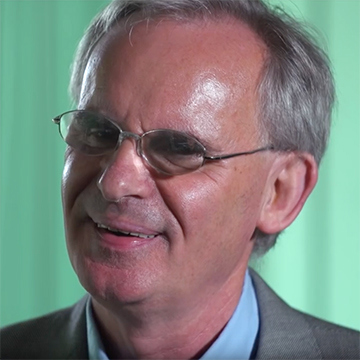How to write news stories better
by Pulitzer prize-winning journalist, Ewen MacAskill
Ewen MacAskill introduces the second in his series of news writing courses for the Thomson Foundation – Advanced Writing: The art of storytelling
Storytelling is an essential part of journalism. You need to know not just how to tell a story but to tell it well. You need to tell a story in a way that will grab the attention of your audience and make them care enough to continue reading, listening, watching.
If you cannot do that, all those hours spent reporting, interviewing, recording and filming will be wasted. You might even face the indignity of having your work passed to another colleague to be rewritten or re-worked. I have been a journalist for almost half a century and, especially when I was younger, suffered such embarrassment.
But I learned from this. I saw how talented colleagues made stories better by going beyond a recitation of bare facts to add context and colour. They would take disparate bits of information and weave them into a story, one with a strong narrative, one that flowed easily. They would add drama by cutting down long sentences and replacing them with short, rapid bursts. Or they might move a quirky fact to the start of the story.
I had many gifted colleagues for whom writing seemed effortless. They seemed to know instinctively how to write an opening paragraph, something I struggled with throughout my career. But they, too, worked hard at their craft. One journalist I complimented on a story revealed he had sat up the entire night writing and rewriting it.
For anyone new to journalism, the starting point in storytelling is a basic news story. Most journalists pick this up at the start of their careers, either on a course or from experienced colleagues. It is a formula, one that can be learned quickly and easily. Beyond the basic news story, there are lots of different (and better) ways of telling stories and in this latest course, Advanced Writing: The art of storytelling, some of the best journalists in the world explore them.
People have always loved stories, whether it was centuries ago someone sitting around a campfire or village square holding an audience entranced, or later through books, newspapers, radio, television, cinema, and now laptops or mobile phones. News is not fiction – or at least it should not be. It deals with facts. But they are still stories, news stories, and as with storytellers down the ages, they need to be told in ways that are engaging.
Ewen’s self-paced, free courses are available now via the Thomson Foundation Journalism Now e-learning platform.


Ewen MacAskill
Investigative journalism
Ewen MacAskill is a Pulitzer Prize-winning former defence and intelligence correspondent for The Guardian who acts as a mentor for Thomson Foundation trainees.
Ewen MacAskill is a Pulitzer Prize-winning former defence and intelligence correspondent for The Guardian who acts as a mentor for Thomson Foundation trainees.
